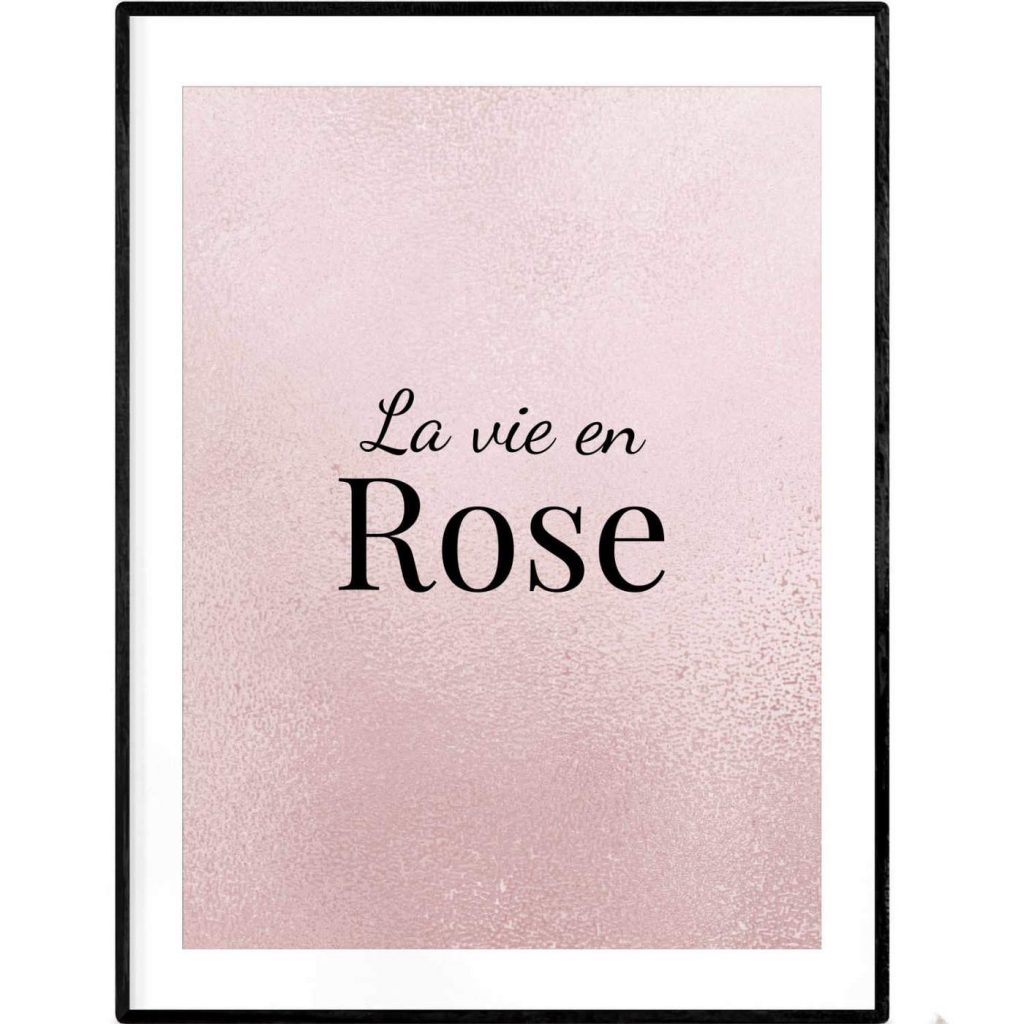There are a lot of myths about French work culture. From the famous 35-hour workweek to acknowledgment that French workers have one of the highest productivity in the world, working life in France is not the same as you might expect.
And if you are planning on doing business in France, or moving and working here, these are things you should probably know upfront. (And no this is not a comparison of workplace healthcare coverage!)
As someone who has worked for several years for large corporations in both France and North America, I can tell you that the French business culture can be quite different from American/English cultural norms. From employee qualifications to happy hour, here are the biggest differences between working in France and the United States.
- 1. Greeting Coworkers
- 2. Morning arrival
- 3. Workplace attire
- 4. Mid-day breaks
- 5. Tea vs Coffee
- 6. The Typical French Work Day
- 7. Doing Business in France
- 8. Canteens for Lunch
- 9. Workplace Hierarchy
- 10. Formality: Tu vs Vous?
- 11. Business Meetings without Decisions
- 12. Time of the year and National Holidays
- 13. The Right to Disconnect
- 14. No Work on Sunday
- 15. Hiring and Job Qualifications
- 16. Sidelined Employees Put in Closet
- 17. Job interviews
- 18. Customer is not King
- 19. Happy Hour
1. Greeting Coworkers
One of the first things you notice when you walk into a traditional French office is that coworkers may greet each other personally. The new arrival will go to the desk of each person and shake hands with a Bonjour, and in the case of a female, may even exchange la bise. Yes, cheek kisses in the morning with co-workers.
This habit is falling out of trend in French offices that have an international footprint, but it is not as uncommon as it sounds. One French female mayor went as far as to start arriving late to meetings, in order to avoid the bises (link in french).
Happily, there is no such ritual when leaving work and saying goodbye (unlike if you are leaving a party with friends). You can read more French business etiquette here.
2. Morning arrival
French law requires that most people are at least 11 consecutive hours away from work, so the morning work day usually starts any time after 8:30am. (I’ll will show you why this is important later.)
Most employees however, usually drop off their children at school around 8:30am, and then commute into work to arrive between 9 and 9:45am.
3. Workplace attire
Unless you work for a start-up, the workplace attire is usually formal. Men are usually in suits and ties, while women in smart dress pants or dresses. Makeup and jewelry is always understated.
Even if the company is a startup or it is Casual Friday, the attire will be business casual with kakis and city sneakers. There are usually no “Mark Zuckerberg-style” hoodies.
4. Mid-day breaks
You may have just arrived at work at 9:30am, but by 10:15am it is time for the morning coffee break with coworkers. These “watercooler moments” are important and employees often discuss the day’s plan, so they should not be skipped.

5. Tea vs Coffee
The morning coffee does mean coffee. The usual French coffee isn’t the Starbucks version, but a tiny little shot of espresso. If you do want something else like tea, you will have to bring it yourself. And if you want a fancier French coffee, well here is a full set of instructions.
6. The Typical French Work Day
As I mentioned above, the typical work day for a French office worker starts around 9:30am, with a coffee break around 10:30am. Lunch is between noon and 2pm, with another coffee break around 3.30pm. The end of the day depends on whether you are a worker who counts his/her hours or not.
Contrary to the myth of the French 35-hour work week, most employees do not get to leave work early. Regular workers don’t count their hours (Eg. accountants, engineers, HR officers, IT technicians, etc.) and are usually “at work” way more than 35 hours. These white-collar workers are known as Cadres usually don’t leave the office till around 6:30 pm at the earliest.
Non-cadres (who account for their hours) may leave earlier, but before 6 pm is usually frowned upon. You can see the full calculation of how work hours are calculated and the typical French work day here.
It is because of these long work hours, where the labor laws say 11 hours need to pass outside office hours, that the morning start usually does not start before 9 am.
7. Doing Business in France
One of the things that always astonishes foreigners and expats in France is the number of layers of bureaucracy it takes to get things done. There is a reason for this. French employment laws are more generally more demanding with more protection for the employees and more legal constraints.
Along with the size of the French labor code (the famous Code du Travail which many jokes exist about), large companies in France are usually attached to a syndicat (union). In addition, there is usually a comité d’entreprise, made up of voted-in employees, who must be consulted for all major decisions and are there to speak on behalf of the employees. Some members of the comité d’entreprise will be part of the union, giving them extra leverage.
So, for example, if you are planning on changing accounting programs, like moving from Quickbooks to SAP, you actually need the approval of the comité d’entreprise, as this is a decision that impacts the employee.
8. Canteens for Lunch
One of the differences that always baffles foreigners about French work culture is the idea that employees in France take a 2 hour lunch break and then leave the office late in the evening. (This is definitely the case in Paris-La Defense.)
This has to do with French labor law, which not only outlines that French employees should not have lunch at their desks, but also that the employer must provide some sort of restauration and food options.
Depending on the number of employees, the employer has to either offer a heavily subsidized canteen by law, where an entrée-plat-dessert usually comes to around €5-6 euros. Alternatively, the employer can offer food vouchers that can be used at nearby restaurants. Many large employers do both, to offer their employees a range of choices.
In addition, don’t be surprised to see individual-sized bottles of wine at the canteen. Having a glass of wine with your meal is seen as relatively normal.
As you can imagine, that lunch which is supposed to be a full meal, and not a quick sandwich, is going to take more than 1/2 an hour. Many employees also head to the gym and run errands during lunchtime.
9. Workplace Hierarchy
French workplaces tend to be more hierarchical in nature than in American or British offices. While open space still rules, upper-level managers usually still have individual offices.
Employees refer to their direct managers in slang as N+1, N+2, etc. depending on the level above themselves. This hierarchy is maintained for all kinds of reporting, decision-making, and evaluations.
10. Formality: Tu vs Vous?
If you speak French, one of the trickiest things to get your arms around is whom you should address formally with a Vous, and whom you can Tu. Personally, I remember an experience when I started to address a particular Senior Director in English, just because I wasn’t sure whether to Tu or Vous.
I then realized that everyone else was “Tu”-ing him, so I did as well. However, he and the rest of the employees were “Vous”-ing another employee as a sign of respect, even though she was at a lower rank but was older and had been with the firm for a long time.
So there is no clear logic, and you should just follow what others are doing, or wait for someone to suggest tutoy-ing.
11. Business Meetings without Decisions
Another interesting difference between French and Americans business meetings is that, in France, several consecutive meetings without any decisions being made.
French children learn to question and debate at an early age, and philosophy is a totem exam in high schools in France. This culture of debate carries on into adulthood and the French workplace.
Meetings will ask for further information, talking points, items to carry forward to the next meeting, etc.

La Vie en Rose Pink | Art Poster
12. Time of the year and National Holidays
A lot of the decision making in French businesses also depends on the time of the year. French people have a minimum of 5 weeks vacation, with most office workers having between 8-10 weeks off per year.
The summer months of July and August will see almost 1/2 of employees off at any given time, since a 3 week break during this period is practically mandatory.
In addition, months like May and December which have a lot of public holidays, also run at a slower pace than September, for instance. When you add in the mandatory school holidays to the mix, the calendar and time of year takes on an importance that you simply don’t see in North America.
You can read more about French holidays and important dates as well as French employee benefits here. (And let’s not forget the French office Christmas party that everyone doesn’t get invited to!)
13. The Right to Disconnect
In 2017, France introduced a new law called the right to disconnect. Businesses with more than 50 employees have to let their employees disconnect from digital devices (emails, phones, etc) outside of their normal working hours.
This means that French managers and employees are not supposed to be sending each other emails at 10pm or while on holiday.
14. No Work on Sunday
Along with not working after hours, there are very strict laws on working on Sunday. If you have ever walked around Paris on a Sunday, you will notice that most shops and restaurants are closed, except for those in authorized areas.
This law also carries into French offices. There is no “coming into the office to do the year-end closing” on a Sunday. Directors and C-Suite offices will receive fines and prison sentences if it is found that employees have been coming into the office on Sunday to work.
So as you can imagine, offices are tightly locked up on weekends. French employees will take their computers home and wrap up a few items if necessary, but it is not expected and cannot be demanded by the employer.
15. Hiring and Job Qualifications
As I mentioned before, French offices tend to be quite hierarchical. This starts as early as the University level and hiring process.
At the University level, there are several schools called the “Grandes Ecoles” that are considered the Ivy League. Students from these schools are automatically considered on the “manager track” and offered better jobs and prospects.
Employees don’t tend to change tracks often, such as moving from accounting to marketing, for instance. Education and previous job experience is not as flexibly valued as in American companies.
16. Sidelined Employees Put in Closet
There is a very French concept that exists here called “placardization“, meaning “put in the closet”. Long-term employees in France have a legal status called the CDI, and once they are outside their trial period (around 6 months after starting) , it is quite difficult to fire that employee.
Even if the employee (or manager for that matter) is turning in a poor performance, employers must undertake the 7 labors of Hercules to get rid of that employee. So the alternative “closet” was created.
Underperforming employees are shifted into makeshift roles with little actual responsibilities and continue to be paid. Both employers and employees dread the mise en placard, and there have been many lawsuits and incriminations surrounding it. You can read more about the closet and mise en placard here.
17. Job interviews
Given the difficulty in firing people, you will not be surprised to hear that French companies can take an awfully long time to hire employees. Interviews can last anywhere from 6-10 rounds over many months before that applicant is offered the coveted CDI job contract.
And if it is over the summer months, get ready for an even longer wait.
☞ READ MORE: New job in France? A Guide to the Médecin de Travail
18. Customer is not King
The American cultural trait of “Customer is King” is simply not the French way. Whether you are in a shop or dealing in an office with co-workers in France, you should be prepared for some pushback.
The reflexive answer tends to be “no” and after a bit of probing, it might turn into a “yes”. The battle is half the fun.
19. Happy Hour
Well it is the end of the day and time to go for Happy hour! Not really in France though. Since everyone has spent such a long day at work and not seen their families yet, most people do tend to head home. Even if it is Friday. So see you at home! A bientôt!




